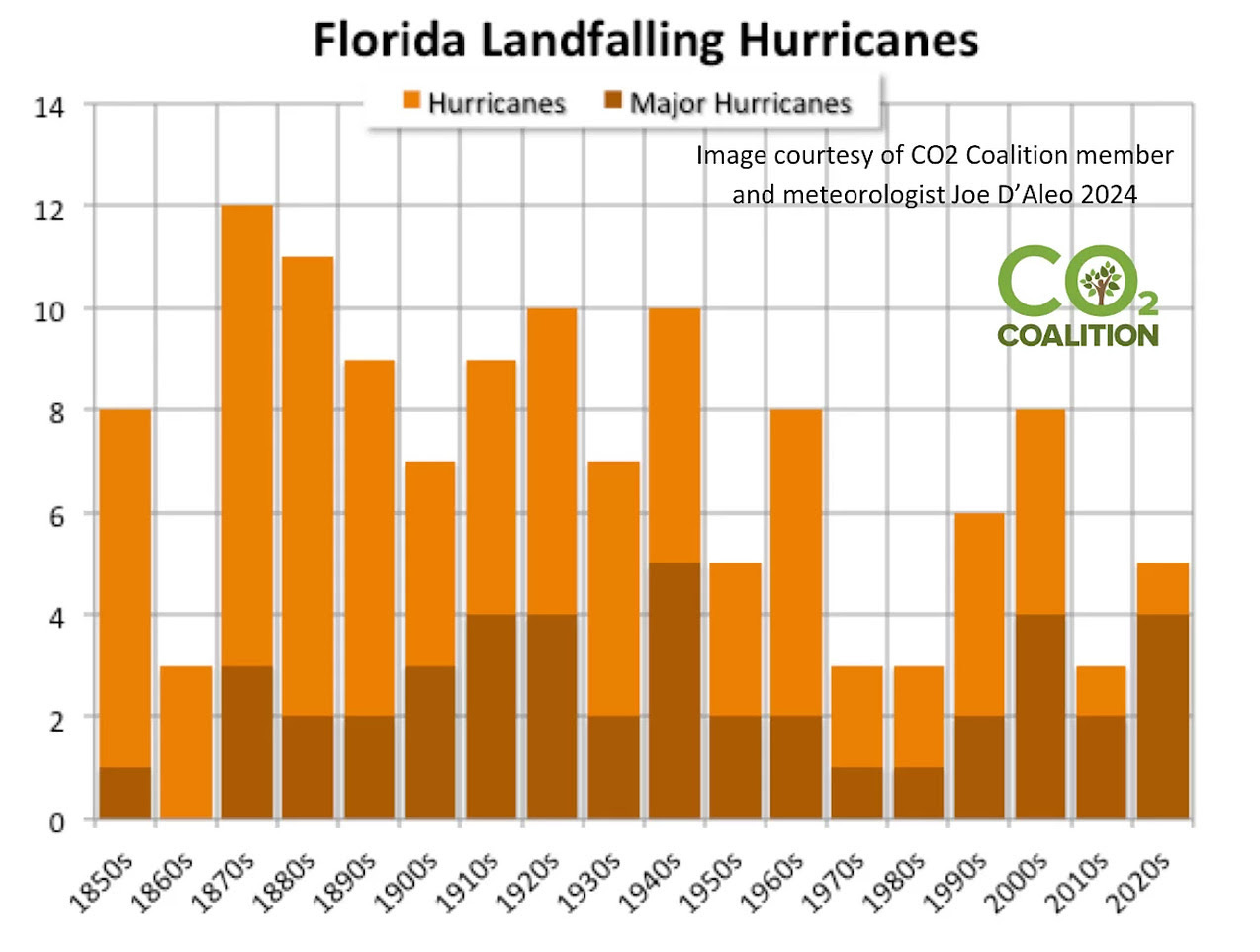“How Climate Corporatism Really Works and How Tax-Exempt Non-Profits Are Used to Advance It” By THOMAS J SHEPSTONE
“ Where is the evidence of intensifying natural disasters?There is plenty of evidence to the contrary, despite intense major media hype to the contrary.”
How Climate Corporatism Really Works and How Tax-Exempt Non-Profits Are Used to Advance It
OCT 16
A good friend sent me this story from CNN yesterday about Zillow now offering potential buyers information on “climate risk.” Here is the thrust of the article, which was picked up by Accuweather and shared:
As intensifying natural disasters threaten growing swaths of the country, assessing an area’s climate risk has become an essential part of shopping for a new home for many Americans. According to a recent Zillow survey, more than 4 out of 5 prospective homebuyers consider climate risks when they shop.
Now, in a feature launched last month, Zillow will show how vulnerable properties for sale might be to extreme climate events.
In partnership with First Street, a climate modeling company, the climate data shared by Zillow is divided into five categories: flood, wildfire, wind, heat and air quality. Home shoppers can explore climate risk data on Zillow’s site through color-coded maps or on individual listings. The feature not only shows a home’s risks today, but it also estimates a home’s climate risks 15 years and 30 years into the future, which are the typical lengths of fixed mortgages.
In addition, Zillow said it is the only platform to offer tailored insurance recommendations alongside the risk information.
Well, that’s interesting, isn’t it? I had some immediate questions:
Where is the evidence of intensifying natural disasters?There is plenty of evidence to the contrary, despite intense major media hype to the contrary.
Why is the story all about “climate risk” when it’s really about risk of weather We events? We are constantly told, and it’s true, that climate is not weather and vice-versa. Yet, weather is treated as if it was climate whenever it serves the narrative of special interests, doesn’t it?
Who exactly is First Street? It turns out to be a non-profit foundation, not a company, and receives big funding from other foundations whose interests are clearly to advance the climate narrative on which so much corporatism is based.
How is that First Street can predict weather events 15-30 years out and Accuweather routinely gets it wrong 5-7 days out? There seems to be some serious overselling of capabilities going on here.
Why are tailored insurance recommendations being promoted? Is there something else going on here?
These questions drove me to do a little further research. I found First Street Foundation (a/k/a 1st Street Foundation) was not only a non-profit foundation, rather than a business, but the bulk of its revenue comes from contributions and grants, which means the goal is to propel a narrative. Most of that money (in 2022 at least) came from the 2040 Foundation, Inc., on which board the head of First Street, Matthew Eby, also serves. The money appears to come from Jay W Faison, a philanthropic promoter of “conservative approaches to climate change,” whatever that means.
We also learn from First Street itself the following:
Federal agencies and the American public can now easily visualize how climate change will impact communities across the US through inclusion of property specific, climate adjusted, aggregated climate risk data from the research and technology nonprofit First Street Foundation within both the White House Council on Environmental Quality (CEQ) Climate and Economic Justice Screening Tool (CEJST) and the Environmental Protection Agency (EPA) EJScreen platforms.
The whole thing, in other words, amounts to a propaganda program. That is further confirmed by the following Perplexity rundown on Rich Powell, the $700K+ board member of the 2040 Foundation:
Rich Powell is a prominent figure in the clean energy sector, currently serving as the CEO of the Clean Energy Buyers Association (CEBA) and the Clean Energy Buyers Institute (CEBI). He leads initiatives aimed at fostering a global community of energy customers committed to advancing a clean energy future. Under his leadership, CEBA's member companies, which represent over $15 trillion in market capitalization, have contracted for 84 gigawatts of new clean energy as of mid-2024
.Before joining CEBA, Powell was the CEO of ClearPath, where he focused on advising policymakers about clean energy innovation and addressing barriers to the deployment of U.S. clean technology. His work included extensive engagement with bipartisan federal clean energy legislation and frequent testimonies before Congress on related issues.
Powell has also held positions at McKinsey & Company, specializing in corporate clean energy strategies and government low-carbon growth strategies.
There could hardly be a clearer example of climate corporatism and it has entangled government, the mainstream media, Accuweather, Zillow and multiple NGOs operating with tax-exemption. This is how it works.
#Zillow #ClimateChange #NGOs #Climate #Corporatism #Nonprofits #ClimateRisk #Weather #FirstStreet







